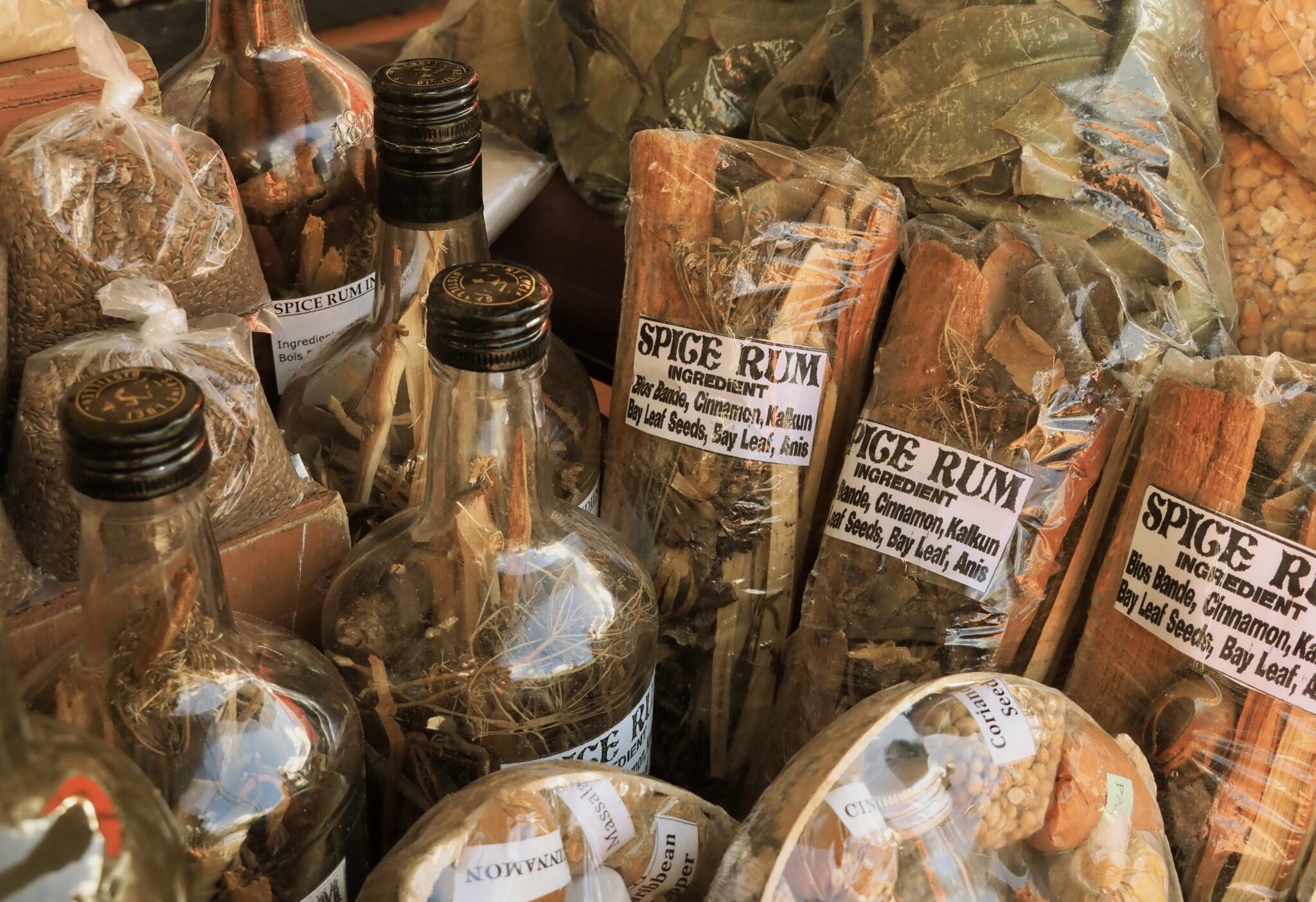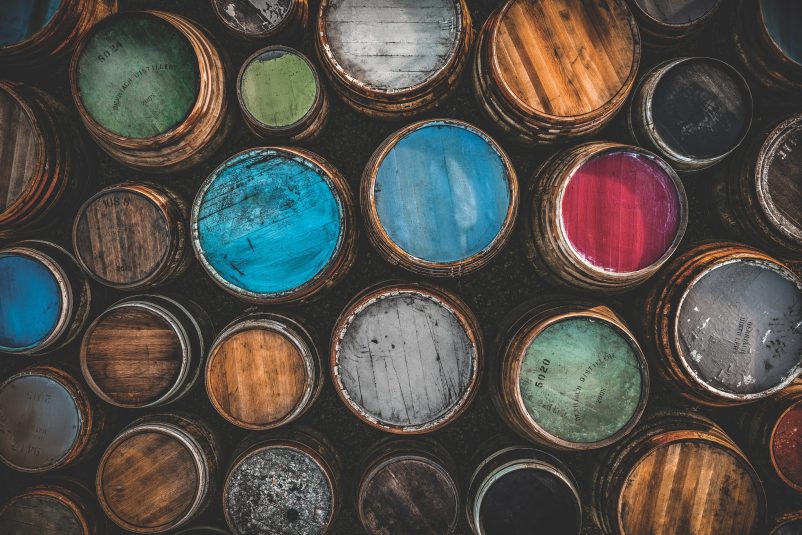The Ethical Cellar was on vacation in St. Lucia, where grapes are not grown. Normally, we cover ethically made wine but, on this trip, our focus was rum and spices.
With each passing year, St. Lucia becomes hotter, not only from ubiquitous global warming, but because travelers have finally discovered the joys to be found there. Until COVID, tourism increased annually and is now strongly rebounding, resorts are being revamped (Viceroy’s Sugar Beach) and built (the exclusive golf resort Cabot), and the island continues to wear the crown as the #1 honeymoon destination.
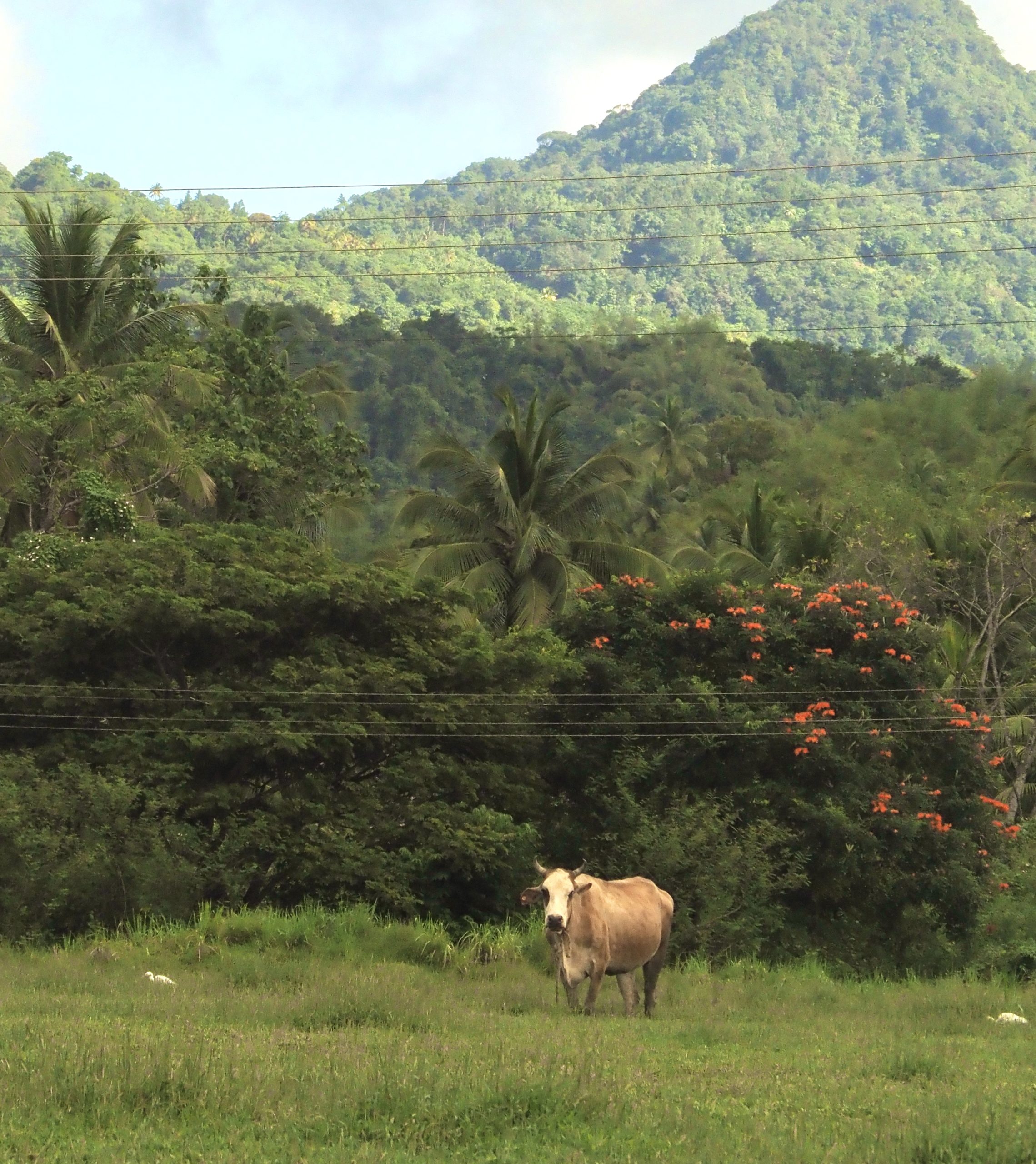 During decades of vacationing in the Caribbean, we have visited over 20 islands, but for the last half dozen years have chosen to return to St. Lucia annually because of (in no particular order) the grace, charm, and humor of the Lucians, the jaw-dropping tropical vegetation, the mountains with their rain forests, the clear warm water, and the sense that there remain daily reminders of the “authentic” Caribbean. A minute off the main road are machete-wielding banana farmers in their muddy boots and cows lazily eating roadside grass while egrets rest on their backs. Each afternoon, groups of uniform-clad, backpack-wearing schoolchildren buy freshly baked treats on their way home. As an aside, St. Lucia has an excellent educational system with many of its graduates leaving the island for advanced studies. We personally know of two, one who is now a surgeon at Johns Hopkins, the other a geological engineer in Scandinavia. The island boasts two Nobel Laureates—Derek Walcott and Sir William Lewis.
During decades of vacationing in the Caribbean, we have visited over 20 islands, but for the last half dozen years have chosen to return to St. Lucia annually because of (in no particular order) the grace, charm, and humor of the Lucians, the jaw-dropping tropical vegetation, the mountains with their rain forests, the clear warm water, and the sense that there remain daily reminders of the “authentic” Caribbean. A minute off the main road are machete-wielding banana farmers in their muddy boots and cows lazily eating roadside grass while egrets rest on their backs. Each afternoon, groups of uniform-clad, backpack-wearing schoolchildren buy freshly baked treats on their way home. As an aside, St. Lucia has an excellent educational system with many of its graduates leaving the island for advanced studies. We personally know of two, one who is now a surgeon at Johns Hopkins, the other a geological engineer in Scandinavia. The island boasts two Nobel Laureates—Derek Walcott and Sir William Lewis.

Unfortunately, most visitors miss this. They’re in gated, all-inclusive resorts. Not us. We rent an apartment, shop in the central farmer’s market and bakeries, and procure the local beverage, in this case, rum.
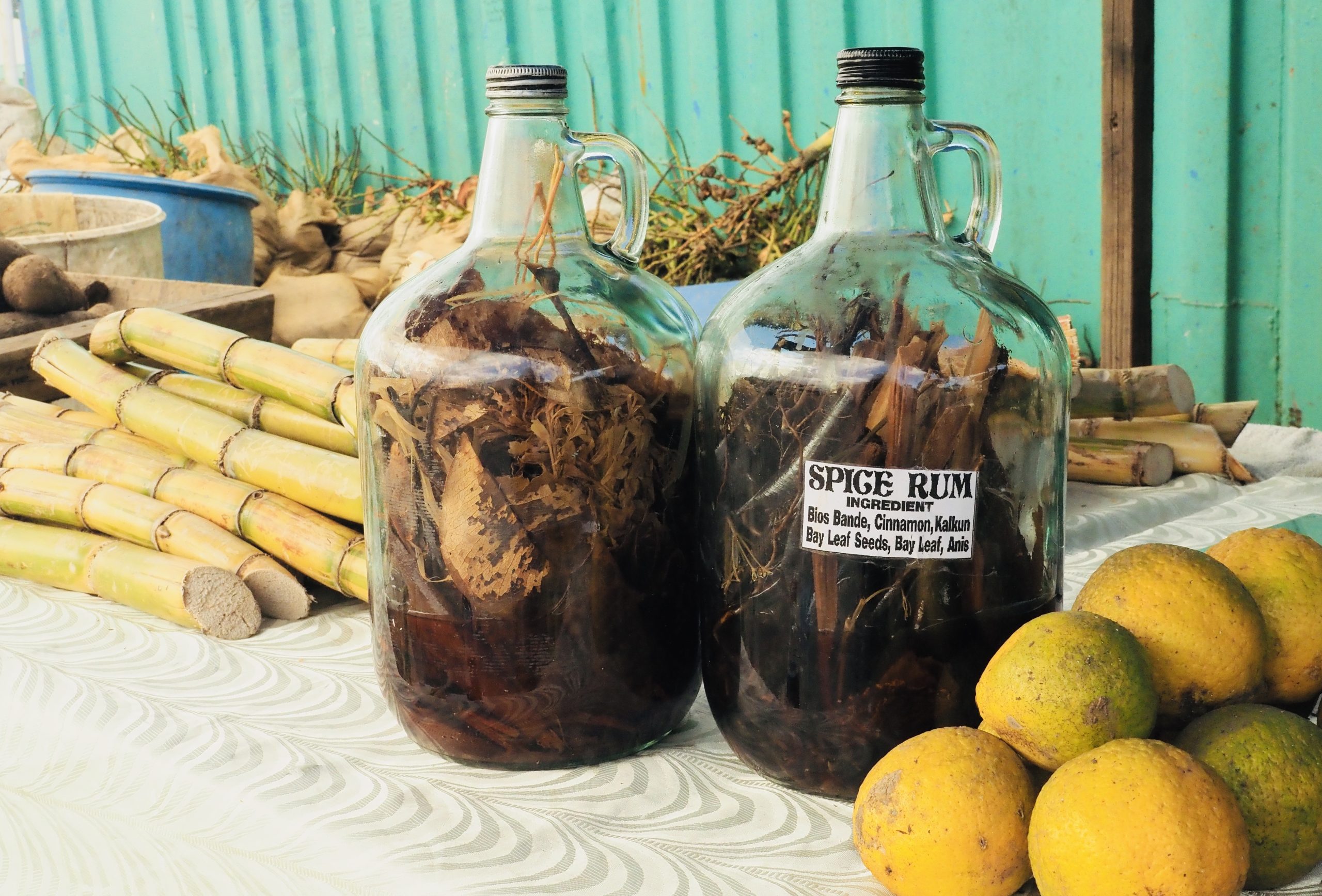
With abundant sugar cane, rum has ruled the Caribbean for centuries. Each island claims its sugar cane “terroir” and propriety pot distilling technique make their rums unique.
A brief reminder. The amber color of rum comes from either barrel aging or the addition of caramel. If the former, the alcohol leaches tannins and esters from the porous wood, creating both color and flavor.
Rum’s influence on St. Lucia is profound. However, because of the mountainous terrain, which limited the viability of the plantation (slave) economy relative to other Caribbean islands, St. Lucia didn’t grow much cane. Instead, they perfected the distilling process.
An artisanal offshoot of white rum is spiced rum. St. Lucians claim to have invented this brew, a product which, in its industrialized incarnation (think Captain Morgan), appears on U.S. mini-mart shelves.
Locals pride themselves on their homemade versions. Passions run deep on whose formula results in the best spiced rum.
Intrigued by this spirit subculture, we asked a St. Lucian friend if he would introduce us to his favorite spiced rum mixologist, so after work on Friday (payday) he took us to nearby Roseau where Junior Louis was preparing rum for that night’s sale.
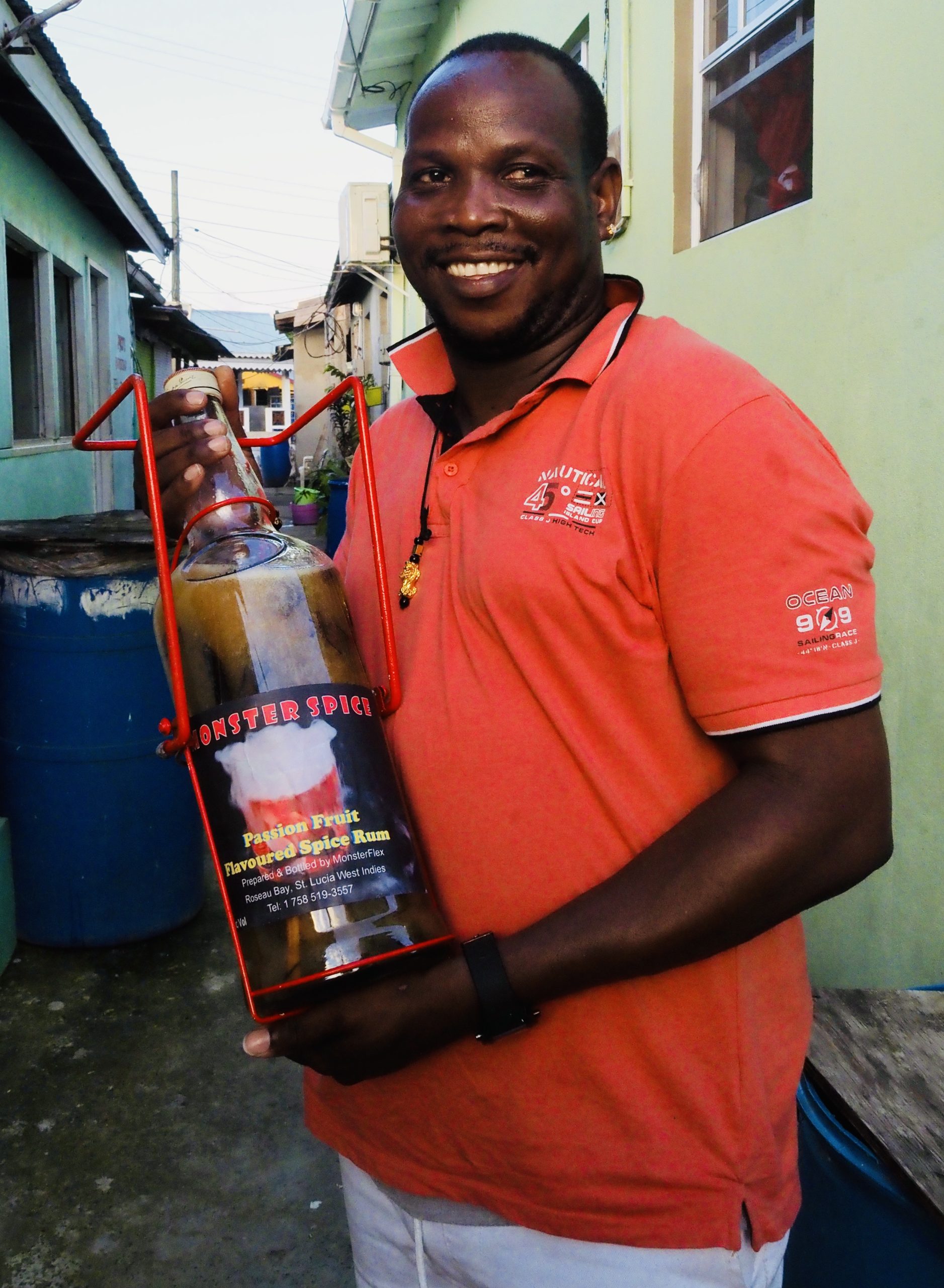
Junior’s headquarters are in the kitchen of his home which is located down a narrow alley, lined with tiny houses, each a foot or two from its neighbor. The alley is lively. Residents have pulled chairs into the narrow space for animated conversations. Children are running around, and Junior is hard at work. His kitchen has been usurped by the accoutrements of this business, primarily oversized bottles containing spiced rum in various stages of maturity.
Junior attributes his island-wide success (including a bar owner who drives 3-hours round-trip each week to have his spiced rum bottles refilled) to his proprietary selection and combination of hand-harvested barks (including mauby), herbs, and spices, many of which are unfamiliar to us. Along with cinnamon, star anise, fennel seed, and two types of bay leaves, he uses kalkun, bois de bande (said to be an aphrodisiac), and nanny, the latter of which imparts a mild minty flavor to the beverage. Proof (pun intended) that this is a winning recipe, his brand, Monster Spice, garnered the top award at an island-wide competition judged by distillery professionals.

As required, Junior uses Denros’ 160 proof rum, explaining that the high alcohol content is necessary to extract flavors from the spices. After macerating all of the above for 5-7 days, he adds enough purified water to bring the alcohol down to that of most rums (40 percent) and then sweetens the mixture with passion fruit, mango, or ginger concentrate.
Every business needs quality control and his is no exception. Once a batch is ready, the first customers get a free sample in return for feedback. During our visit, the batch was too strong, so he remixed before allowing paying customers to partake at 5EC ($1.80) per “shot.”
Junior has competition. Because of the low barrier to entry (the Castries market sells packages of spices, as well as bottles with dried spices ready for the addition of rum), spiced rum is available almost everywhere. For example, our roadside fruit vendor had shots for sale.
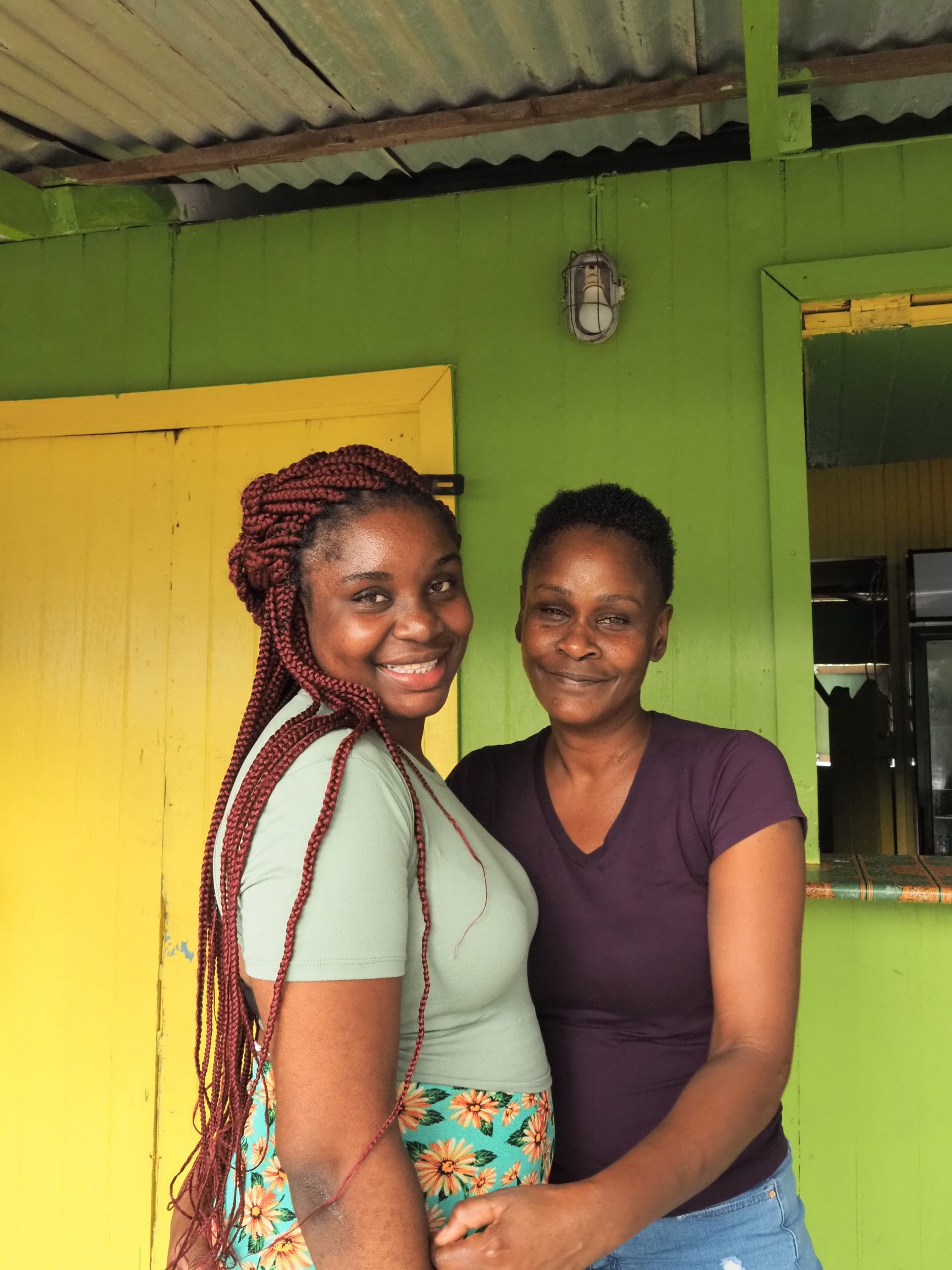
One of his rivals is another friend of ours, Ishana, who sells spiced rum from her beachfront bar in Marigot Bay. Ishana uses many of the same spices as Junior but her method is different, and we think, unique. She boils the spices, including nutmeg, in homemade sugar syrup, refusing to rely on the sweetness in juice concentrates. We found her product surprisingly different and smoother from Junior’s, despite the similarity in ingredients.
If you can’t track down Junior or Ishana, all the grocery stores sell spiced rum made by St. Lucia Distillers, an umbrella corporation with numerous well-known brands including Chairman’s Reserve and Bounty. At their tasting facility, we were fans of Chairman’s Reserve #1, a limited-edition spiced rum made with turmeric, ginger, and almonds. In general, the commercial brands are for tourists and export.
Wanting to try our hand at the alchemy that is spiced rum, we brought home a package of ready-to-immerse spices and barks. Luckily, overproof rum is available in the U.S. Our batch is currently “aging.” We’ll let you know how it turns out.

